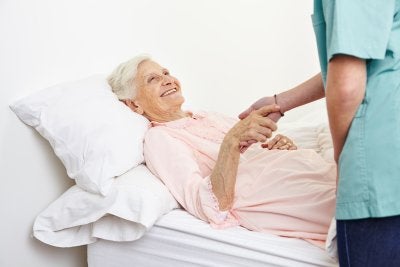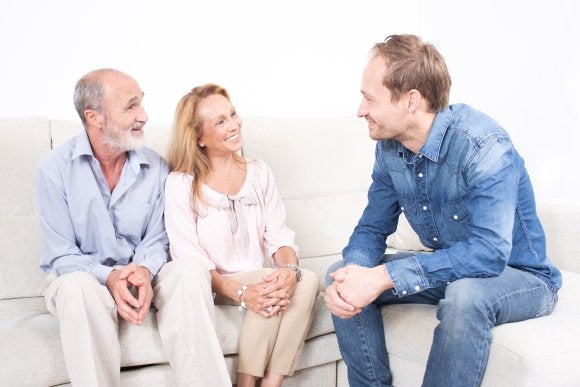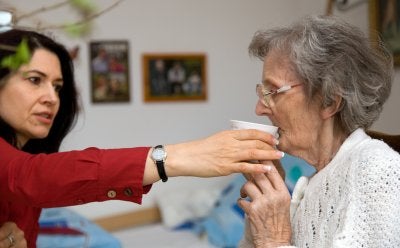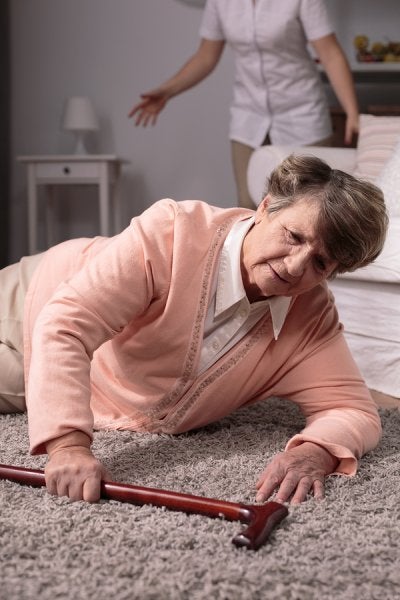-
Identifying the Signs of Alzheimer’s Disease
It’s important to identify the early warning signs of Alzheimer’s disease so that your loved one can receive dementia home care near Memphis as soon as possible. While there is no cure for Alzheimer’s disease, early intervention can potentially slow the progression of symptoms. If your loved one is unable to care for himself due to his Alzheimer’s symptoms, you should hire a home health aide or in-home caregiver for assistance.
Watch this video for valuable information about identifying the early signs and symptoms of Alzheimer’s disease. You’ll get step by step instructions about recognizing the most common Alzheimer’s symptoms so that you can get your loved one dementia care.
-
Understanding the Services Provided By Hospice Care
If you’re considering hospice care in Memphis for your loved one, it’s important that you have a good idea of which senior care services each hospice can provide. Hospice care often provides in-home attention for elders so that your loved one can remain in the comfort of his own home while receiving health care. Here is a simple guide to understanding the home health care services provided by in-home hospice care.
 Respite Care
Respite Care If you are the primary in-home caregiver for an elderly relative, you may occasionally need a break from providing round the clock elderly care. A home health agency can provide you with respite care services that allow you to take a vacation from elder care while a qualified, experienced home health aide provides your loved one with at home nursing care. You can schedule respite care on a regular weekly or monthly basis, or you can seek respite care services on an on-call basis.
Dementia and Alzheimer’s Care
Dementia and Alzheimer’s disease both cause progressively worsening symptoms, including memory loss and cognitive impairment. If your loved one has been diagnosed with either condition, he may eventually need home health care and senior assisted living services. Your loved one may not be able to bathe, dress, or feed himself, and may have difficulty with mobility and remembering to take medication. If your loved one isn’t quite ready to move into a nursing home but can’t manage to care for himself, you should contact a hospice care service. A private duty nurse or home health aide can provide medication management services, personal care services, meal preparation, transportation, housekeeping services, and memory care.
End of Life Care
One of the most difficult decisions to make is determining whether a loved one needs end of life care. A home health agency can schedule regular visits from a home health aide with experience in end of life caretaking. Your in home caregiver can provide terminally ill hospice care, ensuring that your loved one receives the professional and compassionate care he needs while remaining in his own home.
-
Talking to Your Parents About Senior Care
At a certain point in their lives, your parents may need elderly care or homecare assistance near Memphis . It may be difficult for your parents to accept that they need in-home care, so you should plan to have an in-depth conversation about the matter. When having such a conversation, be sure to stress to you parents that they will not need to move out of their home, but instead will simply have regular visits from a home health aide or in-home caregiver.
If your parents are particularly resistant to the idea of in-home elder care, you can consult with a therapist or counselor who has experience in caring for elders. This professional can act as a mediator between you and your parents to make the conversation easier and more constructive. Be sure to listen carefully to your parents’ feelings and concerns and address each one specifically so that they know they’re being heard.
When the time comes to contact a home health care company regarding in-home care, you should make sure that your parents are involved in the process. They should meet any potential caregiver before any elder care services are contracted.

-
Signs Your Loved One May Need Extra Care
It’s perfectly normal for a senior to need some extra care as he or she advances in age, particularly given that growing older can increase the risk of numerous health problems. However, knowing exactly when to make the transition to in-home care can be difficult. Even if you don’t think your loved one needs some extra care right now, it’s a good idea to research your options for elder care in Memphis. Once you know which assisted living options are available in your area, you can begin to plan how to meet your loved one’s changing needs.
 Cognitive Indicators
Cognitive Indicators Cognitive impairment becomes more likely as your loved one ages. At some point, your loved one’s cognitive difficulties can inhibit his or her ability to perform self-care tasks. It’s advisable to introduce your loved one to a caregiver before these issues become too severe. Some indicators that it’s time to discuss elder care with your loved one include forgetting to take medications, forgetting to eat meals, displaying signs of confusion, and missing doctor’s appointments.
Physical Signs
Sometimes, the need for elder care becomes obvious rather abruptly, such as when a loved one suffers a stroke or a fall. In other cases, a loved one may gradually experience increasing physical limitations. Unusual changes in sleeping or eating patterns, difficulty walking, problems keeping up with the housework, and frequently developing bumps, bruises, or more severe injuries are some of the signs that your loved one may need extra care.
Socio-Emotional Issues
Seniors are at a high risk of suffering from depression and other mental disorders. Unfortunately, the signs of depression among the elderly can easily be mistaken for indicators of Alzheimer’s or other forms of dementia. Often, depression is attributable to social isolation. Consider whether your loved one still participates in his or her favorite activities, goes out to the senior’s center or other gathering places, and meets with friends regularly. If not, he or she could be experiencing mental health issues. Hiring a caregiver for your loved one will provide him or her with crucial social contact, cognitive stimulation, and of course, day-to-day care.
-
Steps for Simplifying Your Senior’s Life
As your loved one ages, he may need more and more help completing everyday tasks. Luckily, an in-home caregiver near Memphis can provide elder care services, assisted living services, and home health care for your loved one. In-home care ensures that your loved one remains safe, happy, and healthy without requiring him to move out of his own home.
Watch this video for some great tips for simplifying your elderly loved one’s life. You’ll get advice on removing hazards from the home, staying involved in your loved one’s health care, and contacting a home health agency about their senior assisted living services.
-
Preventing Falls Among Seniors
If you’re caring for elders near Memphis , you need to take some precautions to ensure that they are safe, happy, and healthy. Falls are the most common cause of injury and death among the elderly. Here are some of the ways that caregivers can modify their in-home care to reduce the risk of falls among seniors.

Maintain Physical Activity
As you age, you begin to lose muscle mass and strength, and bones can become brittle and weak. This puts you at a much higher risk of tripping and falling. As a caregiver, you can reduce your elderly loved one’s risk of a fall by ensuring that he maintains a regular physical activity routine. If possible, your loved one should engage in physical activity for at least 20 minutes per day. This can improve muscle tone, strength, balance, coordination, and flexibility, which makes a fall much less likely.
Remove Hazards in the Home
If you’re providing in-home care for a loved one, you must make sure that the home is safe and free from hazards. The primary walkways should be clear of furniture, boxes, cords, and other dangerous items. Rugs should be completely secured with tape, tacks, or slip-resistant backing. If rugs cannot be secured, they should be removed. Damage to carpeting and flooring should be repaired immediately. Bathtubs and showers should be equipped with handrails, non-slip mats, and seating. Necessities should be stored within easy reach so that your loved one doesn’t have to use a stool or chair to access them. Any spills on the floor or walkways should be cleaned up immediately.
Encourage the Use of Assistive Devices
When caring for elders, you may have to communicate with their physicians to determine whether they have health problems that increase their risk of a fall. If he does, he may need to use assistive devices throughout the home to improve his mobility. These devices may include handrails, non-slip treads, canes, walkers, scooters, grab bars for the shower or tub, a raised toilet seat with armrests, and a sturdy seat for the shower or tub.
-
Dealing with a Change in Care Providers
There are many reasons why your loved one may need to transition to a new elder care provider. His or her current caregiver may be moving away or your loved one’s needs may change , for example. If your loved one’s caregiver agency near Memphis notifies him or her that a new caregiver will be assisting him or her, your loved one may need some time to adjust to the new arrangement. Ideally, your loved one will know of the transition well in advance. You can reassure your loved one that the new in-home care provider will be just as kind, compassionate, and competent in providing elder care as the previous caregiver.
If possible, it can be helpful to introduce your loved one to the new elder care provider before the transition occurs. The two caregivers can spend some time together with your loved one to help the new caregiver learn about your loved one’s preferences, routines, and needs. This also allows your loved one to feel more comfortable with the new caregiver and to begin to form a new emotional attachment.

-
Helping Seniors Adjust to At-Home Care
If you have an elderly loved one who is in need of in-home care near Memphis , you may need to help him adjust to the idea of using a caregiver or home health aide. Using an in-home caregiver allows your loved one to remain in the comfort of his own home, rather than moving into a senior assisted living facility or nursing home. Here are some tips for helping seniors adjust to in-home care from a caregiver.

Make Time to Listen Discuss Feelings and Concerns
Your loved one may have a lot of feelings and concerns to discuss with you regarding in-home care from a home health aide. You should be patient with your loved one, and directly address all of his concerns. You may even want to consult with a counselor or therapist who has experience caring for elders. He or she can help you mediate and calm your loved one’s anxiety or fear. Your loved one will feel much better about home health care if he feels that his feeling are being acknowledged and addressed.
Go Over Your Role and the Caregiver’s Role in the Household
Once you hire a home health aide, your role as a primary caregiver will change. You should be sure that your loved one understands how certain duties will be divided between you and the new in-home caregiver. Your loved one may feel more comfortable if you perform certain tasks, rather than the caregiver, until he gets to know his caregiver better. You will most likely remain the mediator between your loved one and the caregiver for a period of time as they both adjust.
Help Your Loved One Prepare His Home for In-Home Care
Before the in-home caregiver’s first day, you and your loved one should prepare his home for the visit. Your loved one may want to rearrange certain things to maintain his privacy, and may want to designate some rooms or areas of the home as off-limits to the caregiver. You should also make sure that any items that the caregiver needs are easily accessible.
-
Making Home Safer for Seniors
As your loved one grows older, it’s a good idea to assess his or her home for potential safety hazards. Consider visiting a caregiver agency near Memphis to discuss your loved one’s elderly care needs. A home health aide can help you make your loved one’s home safer by pointing out areas that need better lighting or by recommending modifications to the bathroom. For instance, placing red and blue buttons on the hot and cold water faucets can prevent scalding injuries. The caregiver may also recommend making sure the bathroom lock can be disengaged from other side, just in case your loved one experiences an emergency and needs help.
Watch this video for more helpful tips on elder care and home safety. It reminds family members of the importance of keeping smoke and carbon monoxide alarms in good working condition and of keeping a fire extinguisher in the kitchen.
-
The Dangers of Falls for the Elderly
Falls are a significant concern for the elderly. In fact, more than one-third of seniors fall each year. Many of these individuals suffer from serious health problems as a result. If you have an elderly loved one, consider talking to a caregiver in Memphis about ways of keeping him or her safe at home. Having an elderly care provider to help your loved one out around the house is one effective way to protect him or her. A caregiver can also be on the lookout for potential safety hazards in the home.

How Falls Occur
There are many potential risk factors of falling . Some of these risk factors are controllable through home modifications that an elder care provider may recommend. Additionally, the in-home caregiver can be on the lookout for side effects from your loved one’s medications. Seniors often take multiple medications, some of which can cause dizziness that may make a person more likely to fall. Seniors can also fall because of muscle weakness, poor flexibility, difficulty walking, and impaired vision. A senior who is having trouble seeing properly may misjudge the distance between one step and the next, for example. Other seniors may fall because they are wearing improper footwear, perhaps because they have trouble putting on sturdier shoes by themselves.
What Complications Can Result
For a young person who is in good overall health, a fall may not seem like a major problem. It may only result in some bumps and bruises. For a senior, a fall may result in a lengthy hospitalization, permanent physical limitations, chronic pain, and sometimes even death. Seniors are at a high risk of osteoporosis, which means they are highly susceptible to suffering from fractures when they fall. Hip fractures are particularly common. In many cases, seniors who suffer from a fracture must endure a lengthy rehabilitation period and they may never regain their full physical function or independence. Falls are a leading reason why families turn to a caregiver agency for help.
How Falls Can Be Prevented
However, the time to look for an elder care provider is before a fall occurs. Caregivers can help keep your loved one safe by providing help with bathing, dressing, laundry, meal preparation, and housekeeping. They can also identify ways of making the home environment safer, such as by removing loose rugs and clutter.
